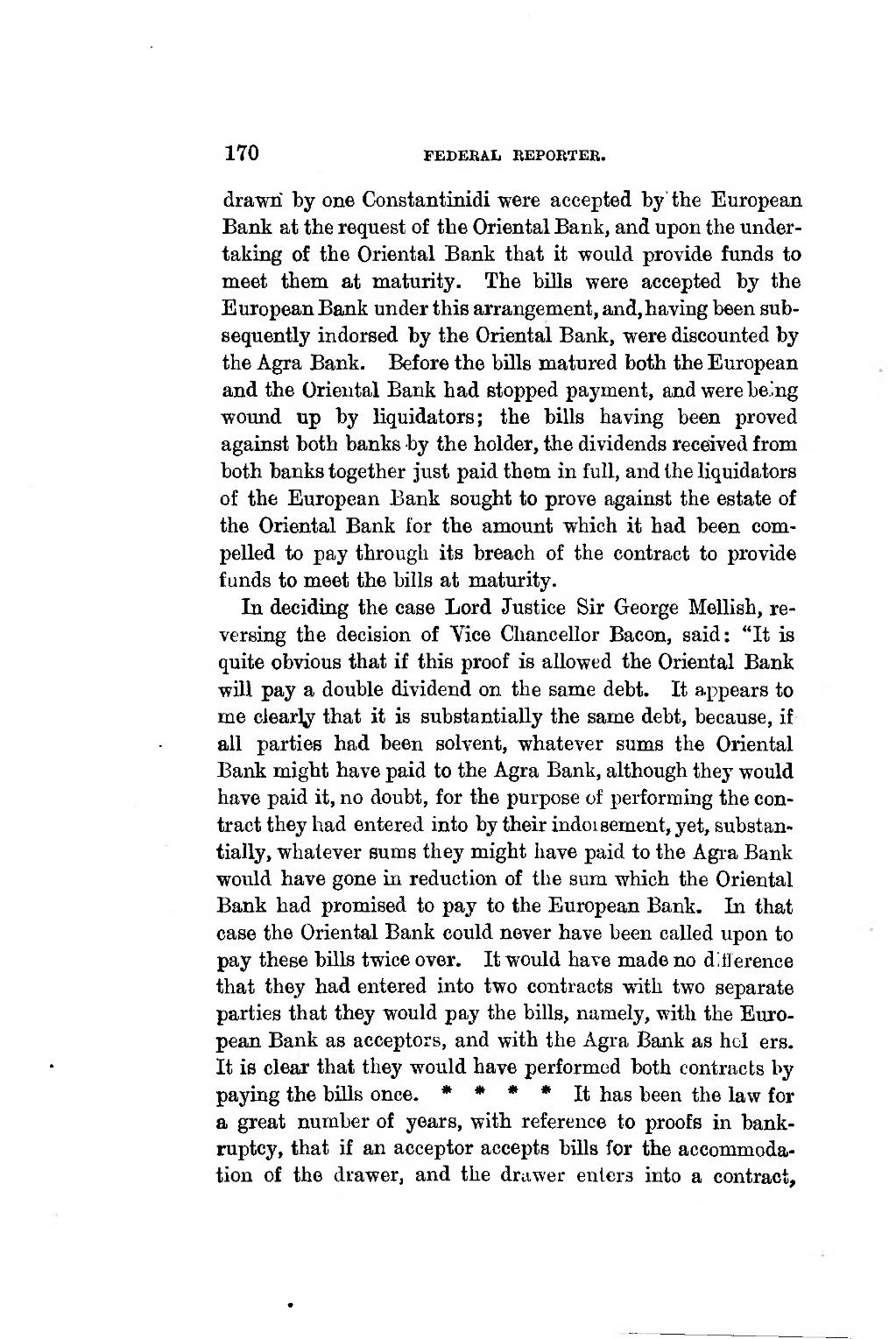170 FEDERAL REPORTER. �drawri by one Constantinidi were accepted by the European Bank at the request of the Oriental Bank, and upon the under- taking of the Oriental Bank that it would provide funds to meet them at maturity. The bills were accepted by the European Bank under this arrangement, and, having been sub- sequently indorsed by the Oriental Bank, were discounted by the Agra Bank. Before the bills matured both the European and the Oriental Bank had stopped payment, and were beJng wound up by liquidators; the bills having been proved against both banks by the holder, the dividends received from both banks together just paid them in full, and Ihe liquidators of the European Bank sought to prove against the estate of the Oriental Bank for the amount which it had been com- pelled to pay through its breach of the contract to provide funds to meet the bills at maturity. �In deciding the case Lord Justice Sir George Mellish, re- versing the decision of Vice Chancellor Bacon, said: "It is quite obvions that if this proof is allowed the Oriental Bank wiil pay a double dividend on the same debt. It a.ppears to me clear]^ that it is substantially the same debt, because, if ail parties had been solvent, whatever sums the Oriental Bank might have paid to the Agra Bank, although they would have paid it, no doubt, for the purpose of performing the con- tract they had entered into by their indoi sement, yet, substan- tially, whatever sums they might have paid to the Agra Bank would have gone in reduction of the sum which the Oriental Bank had promised to pay to the European Bank. In that case the Oriental Bank could never bave been called upon to pay these bills twioe over. It would have made no dillerence that they had entered into two contracts with two separate parties that they would pay the bills, namely, with the Euro- pean Bank as acceptors, and with the Agra Bank as hol ers. It is clear that they would have performed both contracts by paying the bUls once. * » * * n j^^s been the law for a great number of years, with reference to proofs in bank- ruptcy, that if an accepter accepts bills for the accommoda- tion of the drawer, and the drawei- enlers into a contract, ��� �
